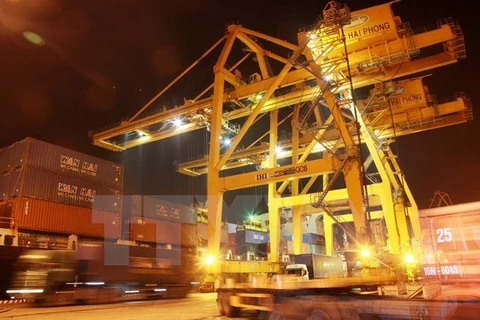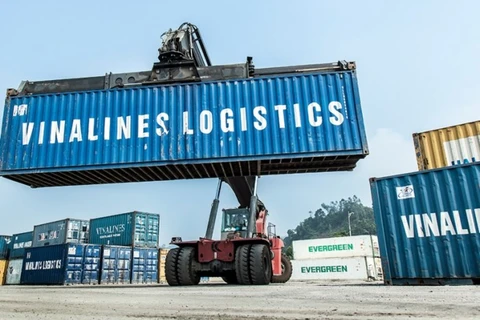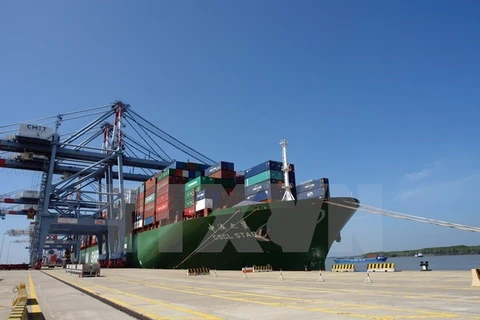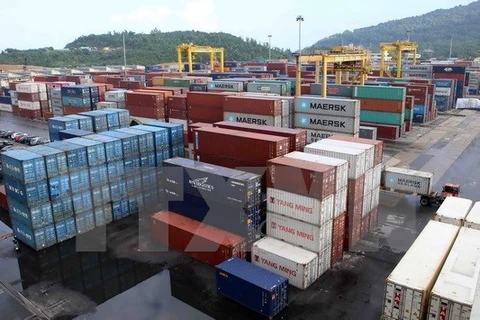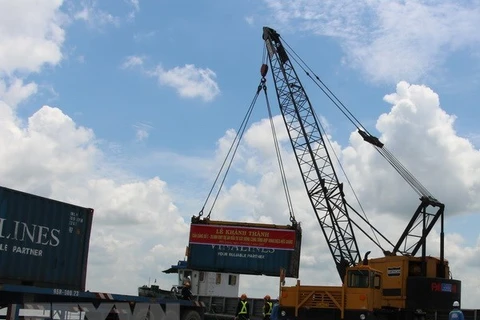Hai Phong (VNA) – Vietnam National Shipping Lines (Vinalines) has sought approval from the Ministry of Transport and the Government for a project to build two container ports at Lach Huyen international seaport in Hai Phong northern city.
Vinalines said the construction of new container ports in Lach Huyen is urgent in order to meet trade demand, as the city plans to move Hoang Dieu port in the Hai Phong International Gateway Port for urban development.
The new ports, with a total length of 750m, will be built with investment worth around 7 trillion VND (300.7 million USD). Once operational, they are expected to receive cargo vessels of up to 100,000 DWT.
In addition, Vinalines and the Hai Phong Port will strengthen cooperation and invest in a 250ha-logistics centre to optimise trade activities in the area.
The project aims to realise Vinaline’s target of handling 30 percent of goods going through the country’s ports by 2020, as well as maintaining its position as the country’s key port operator.
Lach Huyen port will be developed as the sole port in Vietnam’s northern region able to receive ships of 150,000 tonnes. –VNA
Vinalines said the construction of new container ports in Lach Huyen is urgent in order to meet trade demand, as the city plans to move Hoang Dieu port in the Hai Phong International Gateway Port for urban development.
The new ports, with a total length of 750m, will be built with investment worth around 7 trillion VND (300.7 million USD). Once operational, they are expected to receive cargo vessels of up to 100,000 DWT.
In addition, Vinalines and the Hai Phong Port will strengthen cooperation and invest in a 250ha-logistics centre to optimise trade activities in the area.
The project aims to realise Vinaline’s target of handling 30 percent of goods going through the country’s ports by 2020, as well as maintaining its position as the country’s key port operator.
Lach Huyen port will be developed as the sole port in Vietnam’s northern region able to receive ships of 150,000 tonnes. –VNA
VNA

